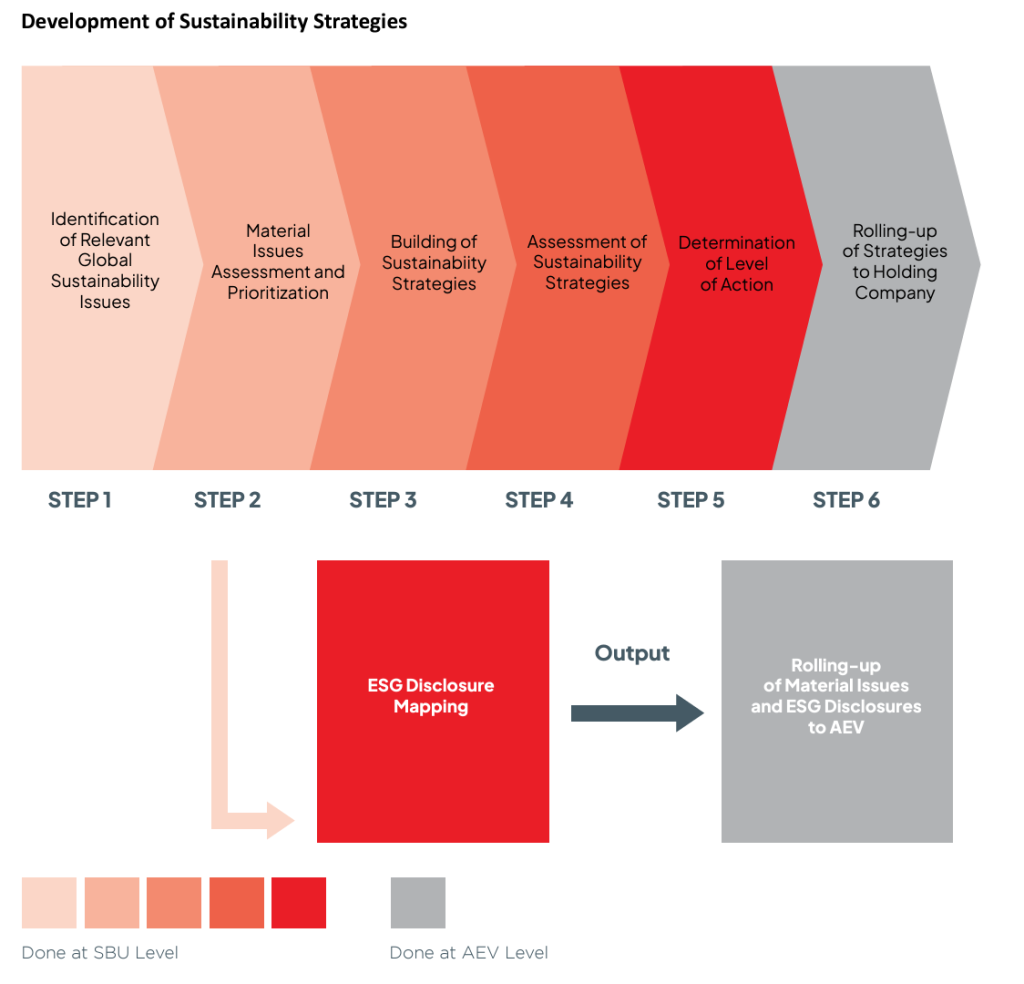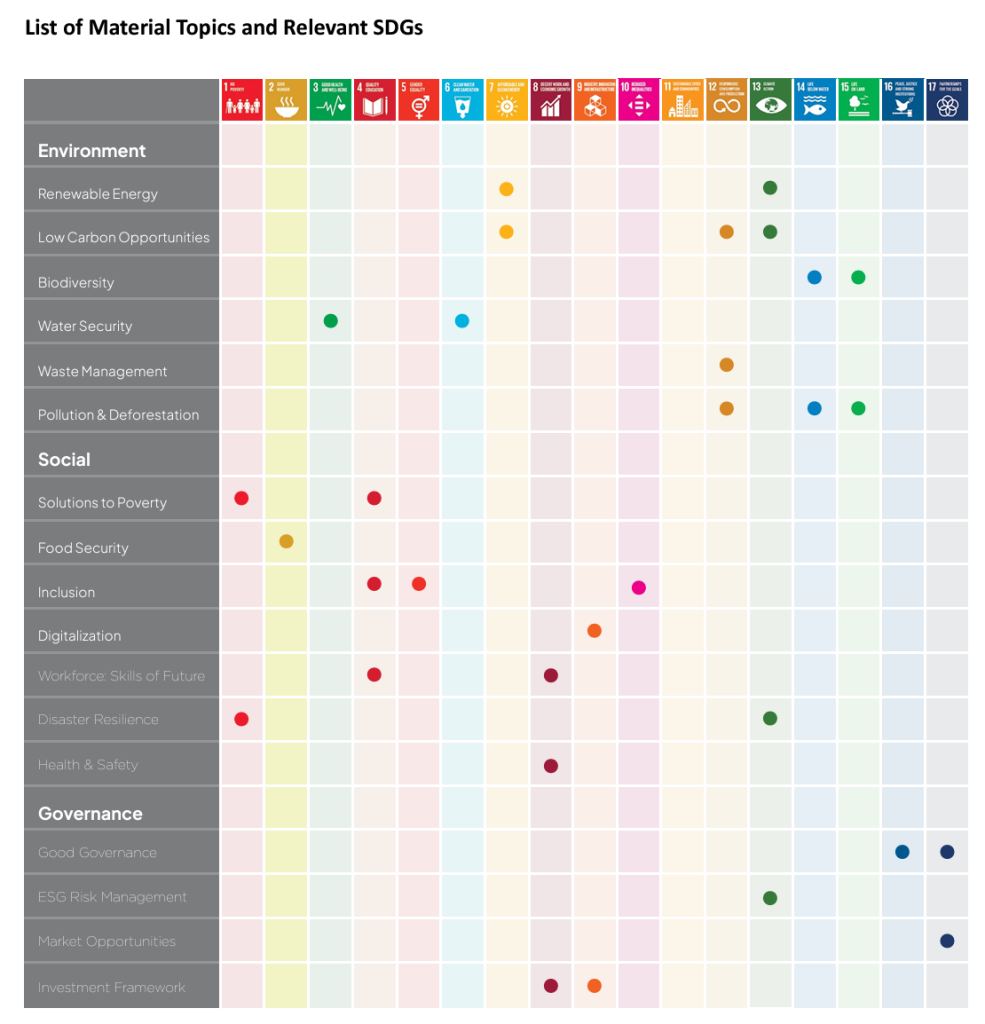Materiality is key for the Aboitiz Group to address ESG issues effectively, enabling us to:
Materiality assessments guided us in the creation of our sustainability roadmap and playbook, embedding ESG considerations into strategy, decision-making, and reporting. This drives innovation and operational efficiency; Adaptation to market trends and consumer preferences, and continuous improvement by addressing gaps and evolving with stakeholder needs.
In 2023, AboitizPower and Aboitiz InfraCapital undertook their Materiality Reviews to integrate the necessary strategic decisions for their SBUs. The two business units identified opportunities for improving their own materiality assessment process. This includes enhancing stakeholder engagement efforts, refining methodologies for identifying and prioritizing material issues, strengthening data collection and analysis capabilities, and improving integration into organizational strategy and reporting.
By integrating materiality assessments into our sustainability approach, we promote responsible business practices, maintain our social license to operate, and position Aboitiz as a resilient, forward-looking “techglomerate” for long-term success.

We have implemented processes, systems, and tools to manage sustainability data effectively, ensuring proper collection, storage, analysis, and reporting. As sustainability becomes integral to our operations, managing this data is crucial for understanding our environmental, social, economic, and governance impacts and making informed decisions to enhance performance.
This table provides an overview of the Sustainable Development Goals’ (SDG) relevance to key focus areas shared across our strategic business units (SBUs). These priority areas drive scalable positive impacts and support SDG targets and indicators.

Distribution
Generation
Retail Electricity Supply
Others
As of December 31, 2024
Note on forward-looking statements
The OneAboitiz Sustainability Microsite may feature “forward-looking” statements describing AEV’s objectives, achievements and outlooks, projections, and expectations. Actual results may differ from the statements expressed or suggested in the report.
Important factors that could impact the company’s operations include, among others, economic conditions affecting demand or supply dynamics, price conditions in markets where the company operates, changes in government regulations, tax laws, and other statutes and incidental factors.